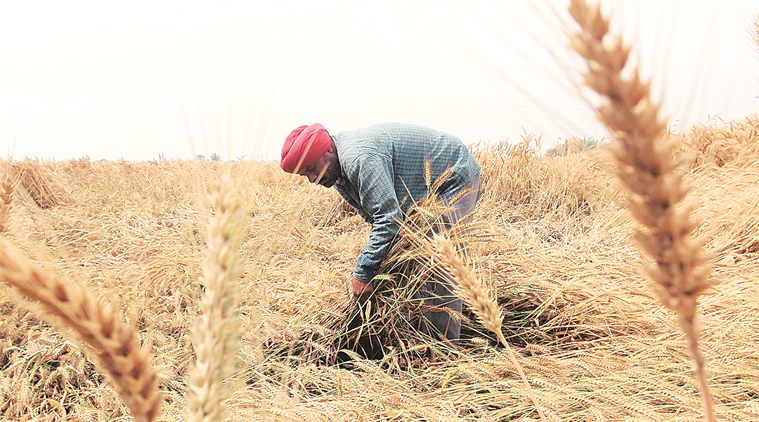- India
- International
‘Civil disobedience’ in Maharashtra: Farmers launch protest seeking govt nod to GM crops
The farmers gathered in Akola said they were launching a ‘civil disobedience’ movement to push the government to approve GM crops, which, they said, helped in increasing their production while reducing costs.
 Authorities said that there was no delay on their part in clearing details of farmers still waiting for their first two installments.
Authorities said that there was no delay on their part in clearing details of farmers still waiting for their first two installments.
More than 1,000 farmers gathered in Akoli Jehangi village in Akot taluka of Maharashtra’s Akola district on Monday and sowed unapproved transgenic varieties of cotton and brinjal.
The protest was organised by Shetkari Sangathana, a farmers’ body which, under the legendary Sharad Joshi two decades ago, had protested the government’s policies on GM crops and forced the introduction of Bt cotton, the first and the only GM crop allowed for cultivation in India.
The farmers gathered in Akola said they were launching a ‘civil disobedience’ movement to push the government to approve GM crops, which, they said, helped in increasing their production while reducing costs.
They said the herbicide tolerant (Ht) third-generation of Bt cotton, developed by US-based agriculture giant Monsanto, was already being cultivated surreptitiously by thousands of farmers in the absence of any forward movement in government policy. The first two generations of Bt cotton had seen the introduction of ‘Cry1Ab’ and ‘Cry2Bc’ genes from the soil bacterium, Bacillus thuringiensis (Bt), into the cotton seed, which made the crop resistant to the attack of pink bollworm.
The third generation variety saw the addition of ‘Cp4-Epsps’ gene from another soil bacterium, Agrobacterium tumefaciens, which produces a modified protein that allows the plant to withstand herbicide glyphosate. Farmers are not able to spray glyphosate on normal cotton because the chemical does not distinguish between the crop and weed, but the herbicide tolerant Bt (HtBt) cotton remains unaffected by glyphosate.

Monsanto had in 2013 moved an application with the government regulator Genetic Engineering Appraisal Committee (GEAC), which functions under the Environment Ministry, seeking approval for its Roundup Ready Flex (RRF) cotton which has both insect resistance (Bt gene) and glyphosate tolerant (Ht) gene. However, the company had withdrawn its application along with its dossier containing reports of field trials and bio-safety trials of this hybrid cotton in 2016, following a bickering with the government on several regulatory issues.
Several reports of farmers growing this hybrid has surfaced in the meanwhile from many parts of Maharashtra, with farmers relying on smugglers for their supply of seeds. Most of the seeds are smuggled from states like Telangana, Gujarat and Andhra Pradesh.
Estimates of the Maharashtra government have stated that around 10 per cent of the 40 lakh hectares of the state’s cotton crop was grown using these seeds. Countrywide, it is expected that 17 per cent of cotton crop was of the HtBt variant.
In the Akola meeting, organised in a field on Tuesday, farmers braved the 40-plus degree Celsius temperature in favour of this hybrid. A group of farmers from Haryana also attended the programme.
Speakers on the occasion talked about the public movement of the late farmers’ leader Sharad Joshi whose public rallies and protests paved the way for introduction of trasngenic cotton hybrid in the country in the early 2000s. Lalit Patil, spokesperson of the Sanghtana, called this act of civil disobedience as the farmers’ fight for introduction of right technology in their field.
The district administration said it will initiate legal action if unapproved varieties of crops were sown. Ayush Prasad, chief executive officer of Akola zilla parishad, said as per norms, a special committee of zilla parishad and district agriculture office can collect samples of seeds, fertilizers, pesticides etc. for testing. “We have taken sample of seeds planted and will test them for unapproved traits. Further action will depend on the results,” he said.
Apr 19: Latest News
- 01
- 02
- 03
- 04
- 05






































